Govardhan Eco Village Creates Vrindavan Biodiversity Park
By Madhava Smullen | Nov 09, 2019
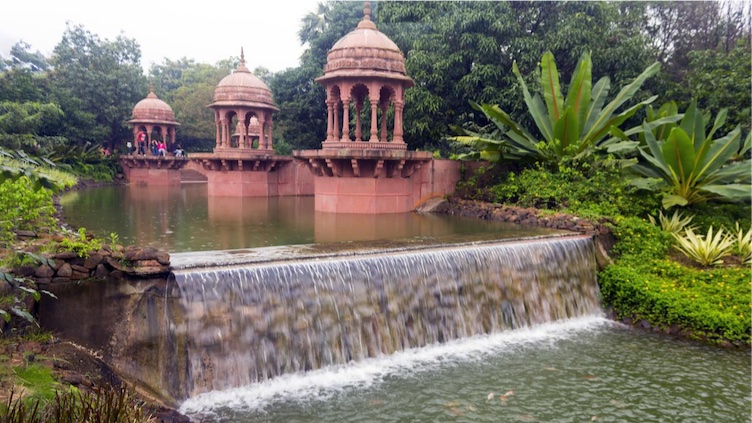
Taking inspiration from the symbiotic biodiversity of the original Vrindavan Dhama in Northern India, Govardhan Eco-Village – ISKCON’s 140-acre farm in the foothills of the Sahyadri mountain range, Maharashtra – has created a “Vrindavan Biodiversity Park.”
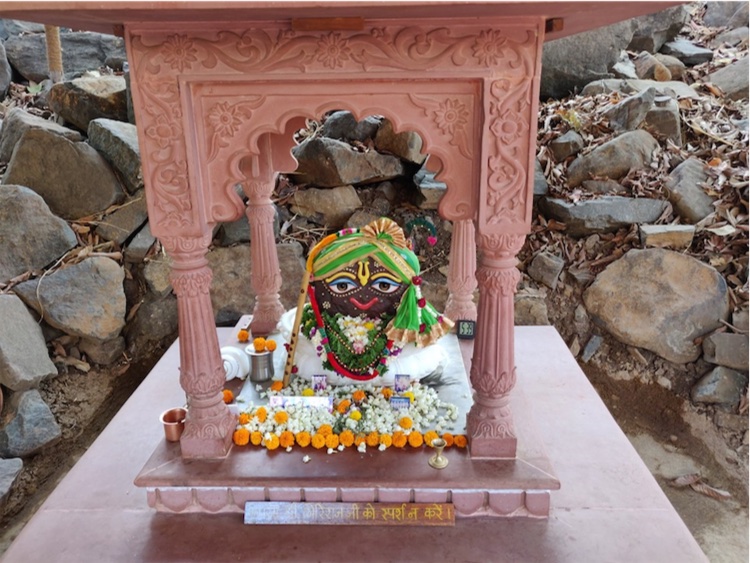
A Govardhana-shila
The park is landscaped on the theme of the twelve forests of Vraja, boasting replicas of the original temples of Vrindavan.
Visitors can book a full experience, walking through the elaborate recreation of Vrindavan, as devotee guides take them back 5,000 years ago to the pastimes of Lord Krishna described in the Vedic scriptures.
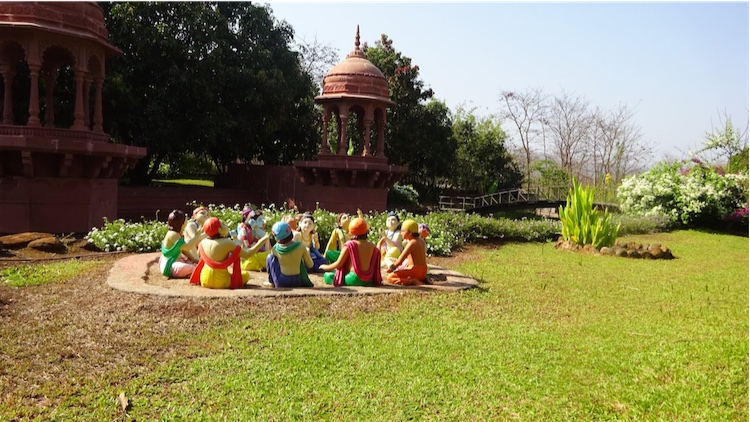
Krishna and his cowherd friends enjoy a picnic lunch
The tour begins with a video show and orientation, preparing them with the right mood to enter Vrindavan.
A blissful Vrindavan parikrama with live kirtan and fascinating stories of Krishna’s pastimes follows. It includes visits to an 85-foot tall Madan Mohan Temple replica, Raj Bhog arati at the Sri Sri Radha Vrindaban Behari Temple, a walk around Govardhan Hill with its sacred ponds and samadhis (memorials to the Goswamis of Vrindavan), and a chance to participate in a traditional Yamuna arati, offering fire lamps at the banks of the “Yamuna” river.
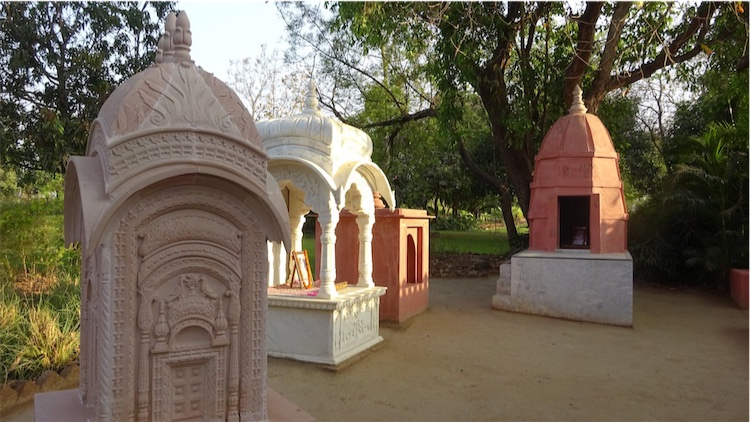
Samadhis of the Goswamis near Govardhan Hill
Devotees headed by Director Gauranga Das say it’s “a welcome respite away from the stress of this world,” and that the many temples and their gardens “offer peaceful spots for inspiration and quiet meditation.”
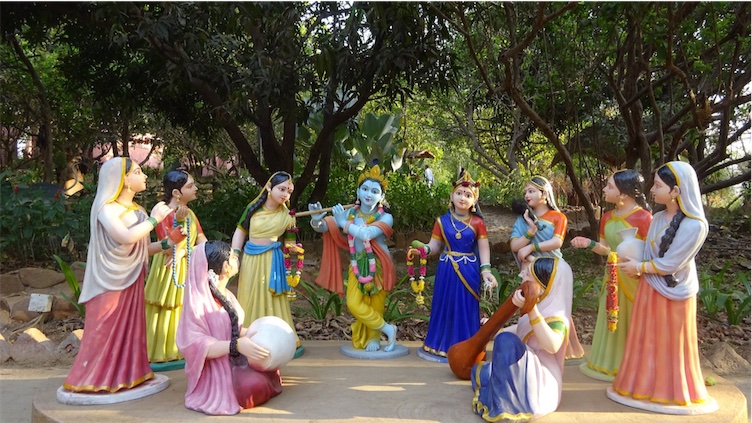
Lord Krishna with Srimati Radharani and the gopis
While at Govardhana Eco Village, guests can also visit the community’s goshala, which cares for 100 cows, its educational institutions like Bhaktivedanta Vidyapitha, and its Ayurvedic Center. Finally, they can see its ecological/sustainability projects, such as the rainwater harvesting system devotees use to irrigate their crop fields, as well as symbiotic waste recycling, alternative energies, and green building technologies, all used to ensure a minimum carbon footprint.
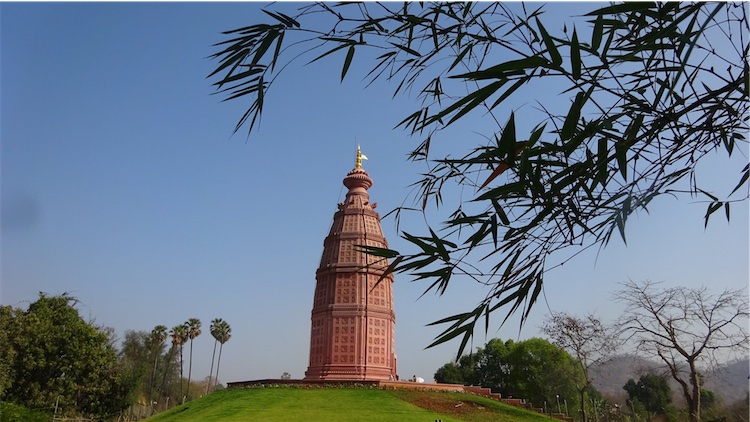
The 85-foot tall replica of Madan Mohan temple















